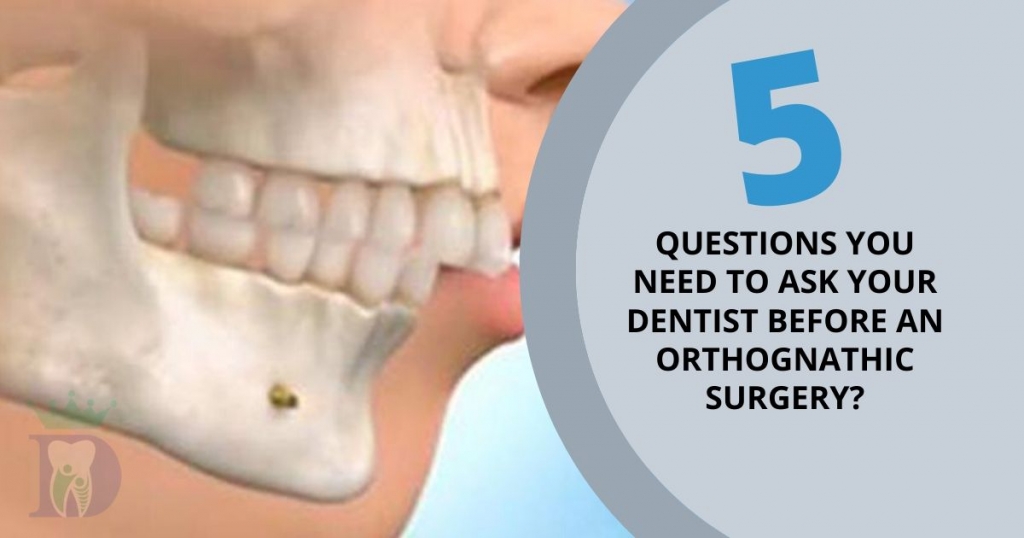Orthognathic surgery, also known as corrective jaw surgery, is used to correct conditions related to the structure of the face and jaw which causes orthodontic problems like, TMJ disorder, malocclusions, and other problems that cannot be treated with normal braces. If you have been advised to get an orthognathic surgery, here are 5 questions that you need to ask your dentist before your Orthognathic surgery.
Question – 1: How would Orthognathic surgery benefit me?
Dentists advise different people to get orthognathic surgery for different reasons. One of the main reasons why people get orthognathic surgery is to relieve pain caused due to misaligned jaws. The misaligned jaws can strain the jaw muscles causing severe pain. This pain can be eradicated with orthognathic surgery.
In some cases, these misaligned jaws can cause problems with chewing and speech which can also be corrected with orthognathic surgery. Once the jaws have been aligned properly an evident improvement in chewing and speech function can be seen. A corrected jaw can also improve facial aesthetics which provide newfound confidence in people after the surgery.
Question-2: What does orthognathic surgery involve?
Depending on your condition, orthognathic surgery may involve surgical correction to your upper jaw (maxilla) or the lower jaw (mandible) or sometimes the correction of both your jawbones. Orthognathic surgery involves surgically repositioning your jaws to the correct position and securing it in its new place with small screws and plates beneath the gum. These screws and plates are left there permanently. In some cases, you might need to wear orthodontic elastics for your bite to settle after the surgery.
Question-3: Will there be any visible scars on my face after Orthognathic Surgery?
Absolutely Not! Since the surgery is carried out from inside your mouth, there won’t be any visible scars on your face, after the surgery. For some specific types of surgeries, a small incision will be made at the angle of the jaw. However, this cut would be virtually invisible a few weeks after the surgery.
Question-4: What are the risks associated with Orthognathic Surgery?
Lip Numbness: Since anesthesia is administered before the surgery, it is normal to have some lip numbness after the surgery. This lip numbness would recover after a few hours post the surgery. But sometimes, some people may experience prolonged lip numbness. However, this numbness does not in any way affect the appearance or function of the lip.
Post-surgical infection: Like all surgeries, even orthognathic surgeries have the risk of post-surgical infection. In the event of such infection, the plates placed beneath the gums are removed. The risk of infection is greatly increased due to poor oral hygiene, poor overall hygiene and cigarette smoking.
Question-5: What are the care practices that one should follow after Orthognathic Surgery?
You can start eating soft foods and drink liquids after surgery. Most people tend to shed some weight after the surgery, so it is important to eat healthy nutrient-rich foods to prevent weight loss. Your mouth opening will be restricted for a few days after the surgery, so it is important to eat soft foods that do not require much chewing or oral movement. Eating hard foods should be avoided for at least 6 weeks until the jaw bone heals. It is also important to maintain optimal oral hygiene after the surgery to avoid the risk of infection.
